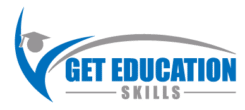The Comprehensive Guide to Key Aspects of Education
The Comprehensive Guide to Key Aspects of Education
Blog Article

Education is a vital element of personal and professional development. It spans various dimensions, from acquiring essential skills to navigating exams, planning careers, and preparing for higher education. This guide provides an in-depth look at these crucial aspects of education, offering insights and strategies to help students, educators, and professionals thrive.
1. The Essence of Education
Education is more than just classroom learning; it's a holistic process that fosters intellectual, emotional, and social growth. It equips individuals with the knowledge, skills, and values necessary for personal fulfillment and societal contribution. From early childhood education to lifelong learning, education shapes our understanding of the world and prepares us for diverse life challenges.
2. Essential Skills for Success
To excel in both academic and professional environments, developing key skills is crucial:
Critical Thinking: The ability to analyze and evaluate information critically to make informed decisions.
Effective Communication: Proficiency in expressing ideas clearly and persuasively, both orally and in writing.
Problem-Solving: The capacity to identify issues, think creatively, and implement practical solutions.
Time Management: Skills in organizing tasks and managing time efficiently to achieve goals.
Digital Literacy: Competence in using technology and digital tools to enhance learning and productivity.
Cultivating these skills enhances academic performance and prepares individuals for various career and personal scenarios.
3. Strategies for Effective Exam Preparation
Exams are a key part of the educational process, assessing students’ knowledge and understanding. Effective preparation includes:
Familiarize with Exam Formats: Understand different types of exams, such as multiple-choice, essay, and practical tests.
Create a Study Plan: Develop a structured schedule that allocates time for studying and practicing.
Use Study Resources: Utilize textbooks, online resources, and previous exams to reinforce learning.
Manage Stress: Employ relaxation techniques and maintain a balanced approach to studying to reduce anxiety.
Proper preparation helps improve performance and deepen comprehension of the subject matter.
4. Career Planning and Development
Career planning is essential for achieving professional goals and ensuring career satisfaction. Key aspects include:
Self-Assessment: Evaluate your strengths, interests, and values to determine suitable career paths.
Explore Career Options: Research various professions, their requirements, and growth opportunities.
Skill Development: Obtain relevant qualifications, gain experience, and build skills through education and internships.
Networking: Build professional relationships and seek mentorship to gain insights and opportunities in your chosen field.
Strategic career planning aligns educational efforts with long-term career objectives.
5. Leveraging Online Career Resources
The digital world offers a wealth of resources for career advancement:
Job Search Engines: Platforms like Indeed, Glassdoor, and LinkedIn list job openings and provide company insights.
Professional Networking Sites: LinkedIn and similar platforms help connect with industry professionals and discover job opportunities.
Online Learning Platforms: Sites such as Coursera, edX, and Udemy offer courses and certifications to enhance skills and knowledge.
Utilizing these online tools can streamline job searches and support career development.
6. Preparing for College
College is a significant milestone in higher education and requires careful planning:
Research Colleges: Evaluate institutions based on their programs, campus life, and location.
Application Process: Prepare application materials, including essays, recommendation letters, and transcripts.
Financial Planning: Understand tuition costs and explore financial aid options, scholarships, and grants.
Effective preparation can greatly influence your college experience and future career prospects.
7. Supporting Educators
Educators play a crucial role in facilitating effective learning. Key aspects of successful teaching include:
Lesson Planning: Design engaging and educational lessons that meet curriculum goals.
Classroom Management: Foster a positive and productive learning environment.
Student Assessment: Regularly evaluate and provide feedback to support student growth and development.
Supporting educators with resources and professional development is essential for delivering high-quality education.
8. The Importance of General Education
General education provides a broad foundation of knowledge and skills:
Literacy and Numeracy: Fundamental skills in reading, writing, and mathematics.
Social Studies: Understanding of historical, geographical, and civic contexts.
Science and Technology: Knowledge of scientific principles and technological advancements.
A strong foundation in general education prepares individuals for various opportunities and supports lifelong learning.
Conclusion
Education encompasses a wide range of components, including skill development, exam preparation, career planning, and college readiness. By focusing on these key aspects and utilizing available resources, individuals can enhance their educational experiences and achieve their goals. For additional information and resources, visit Get geteducationskills Education Skills.